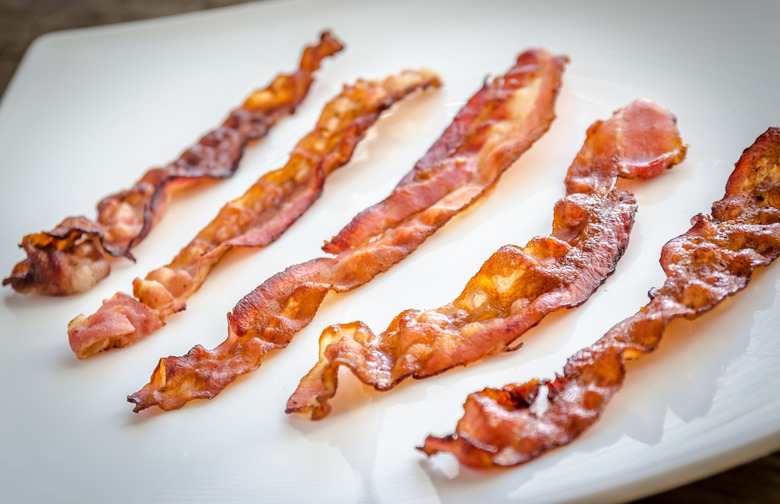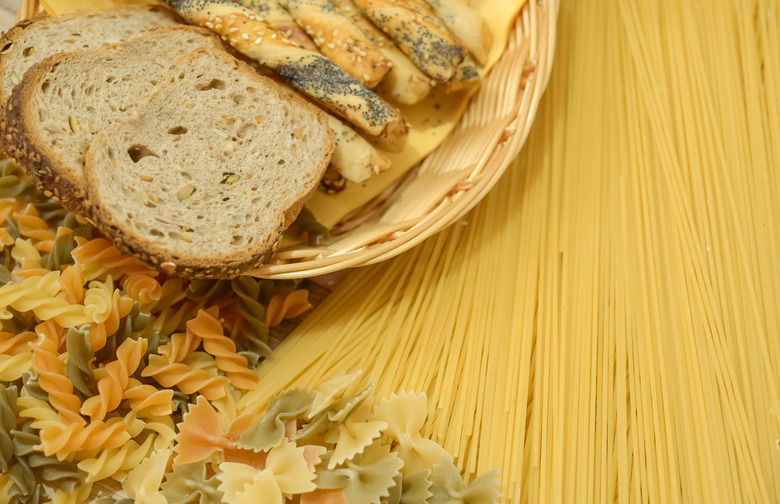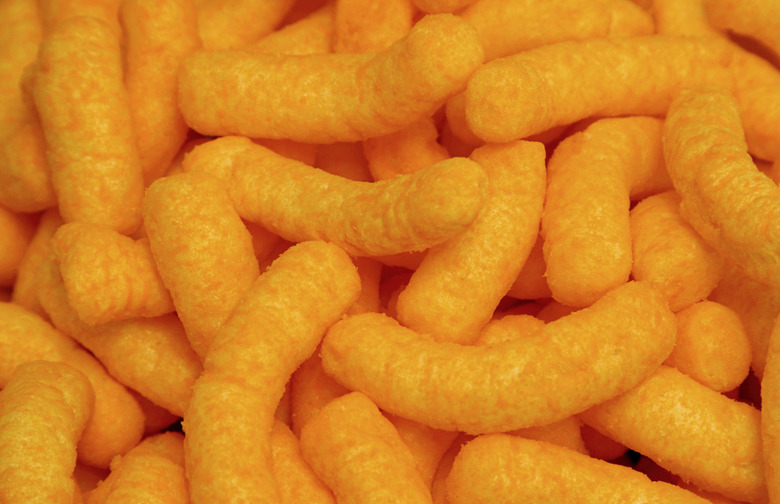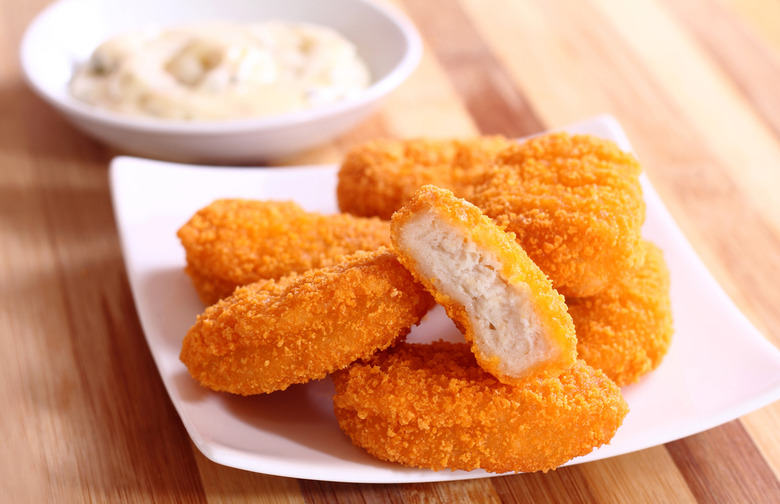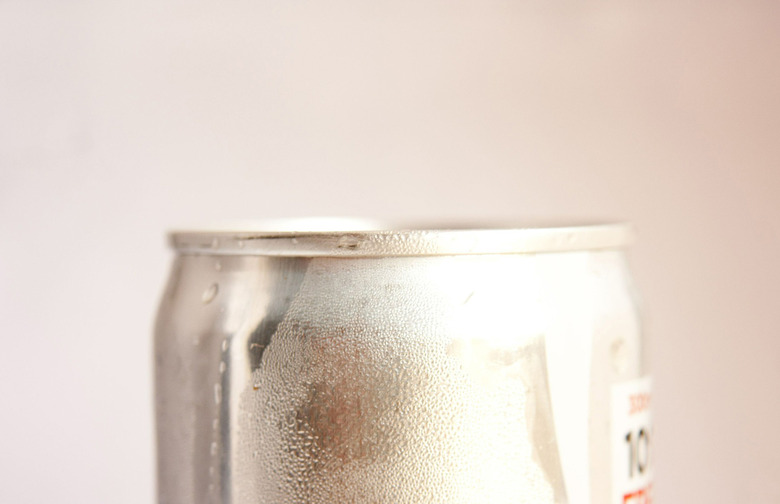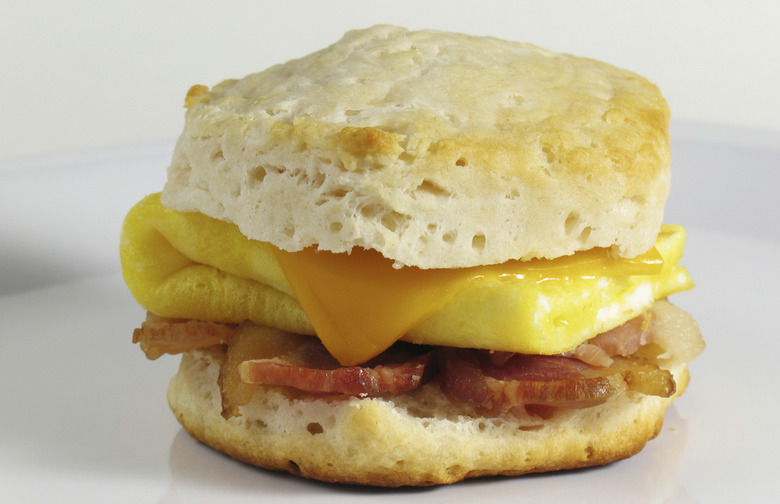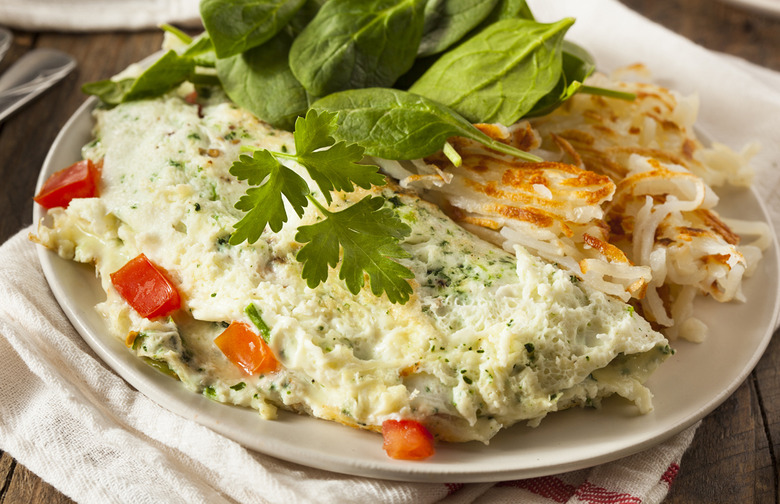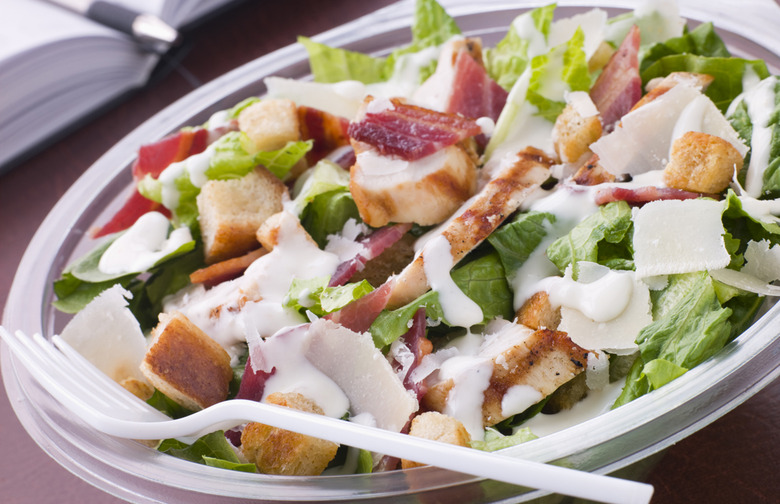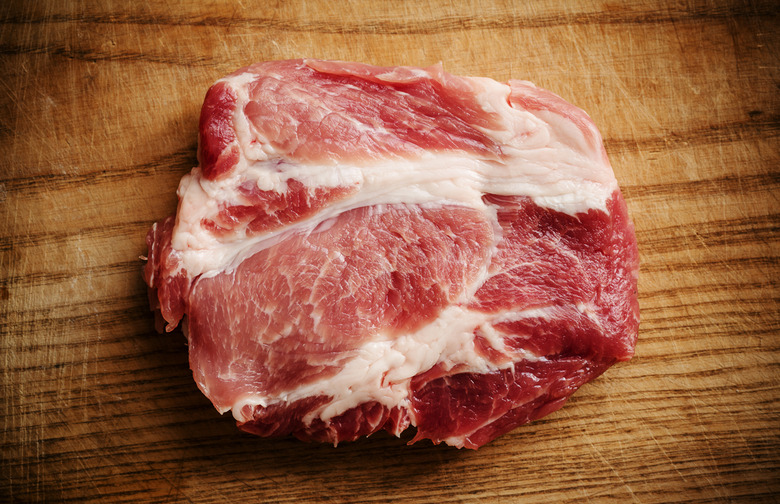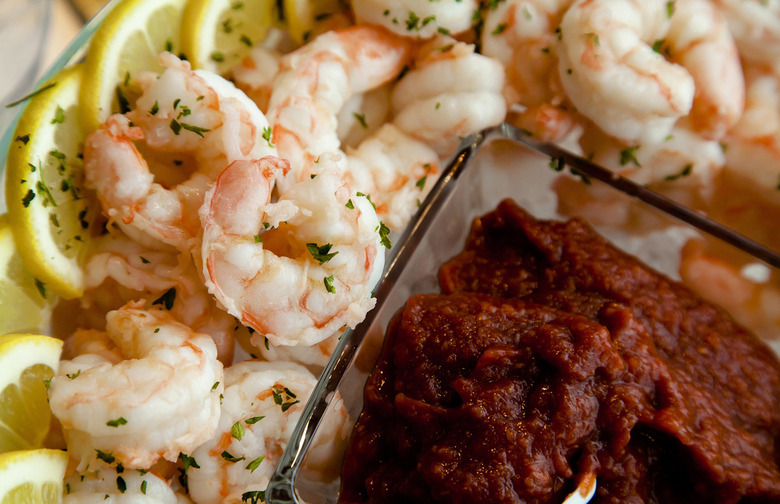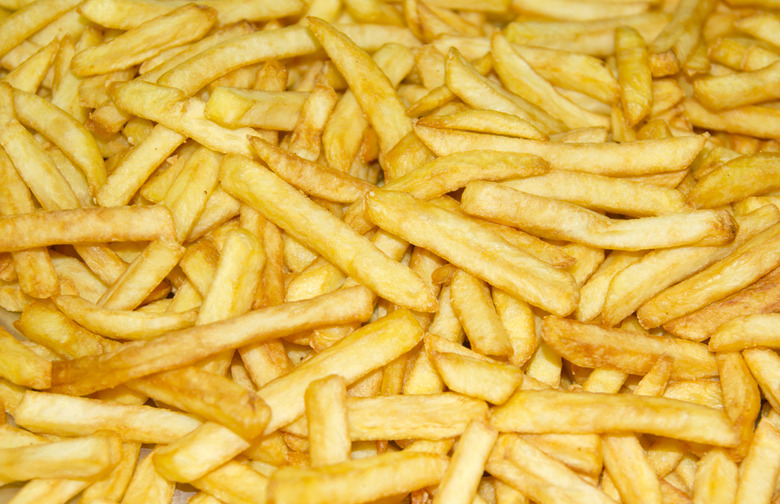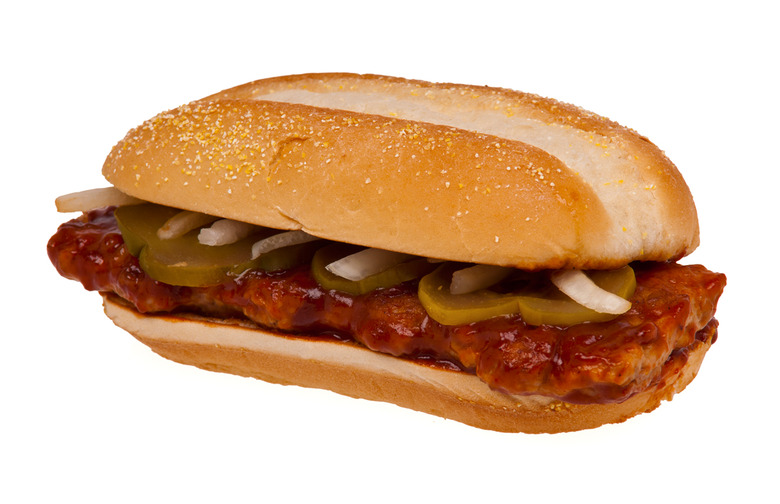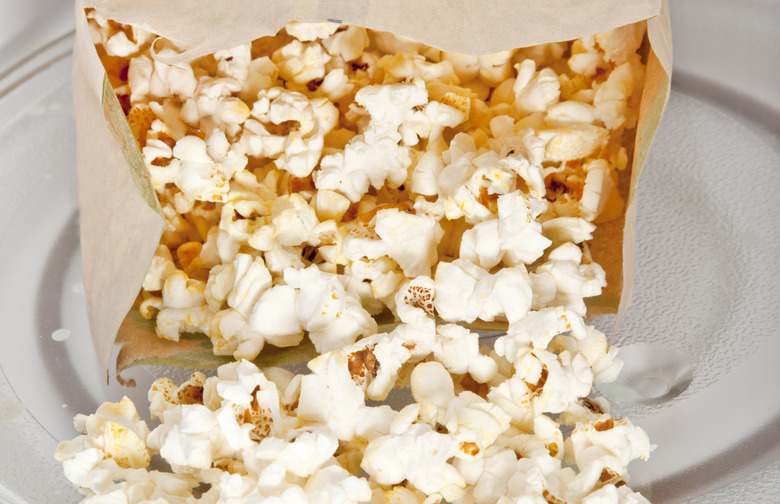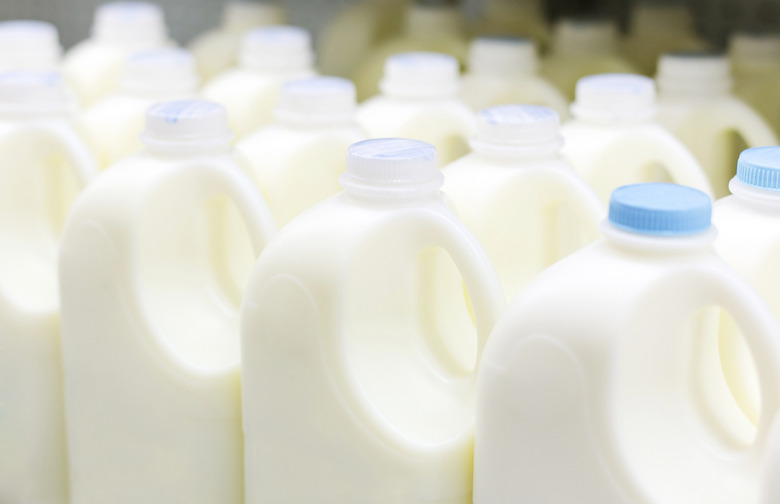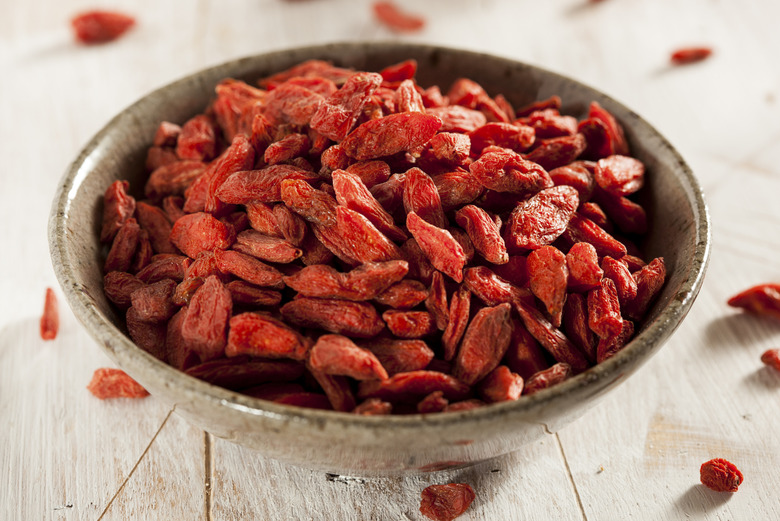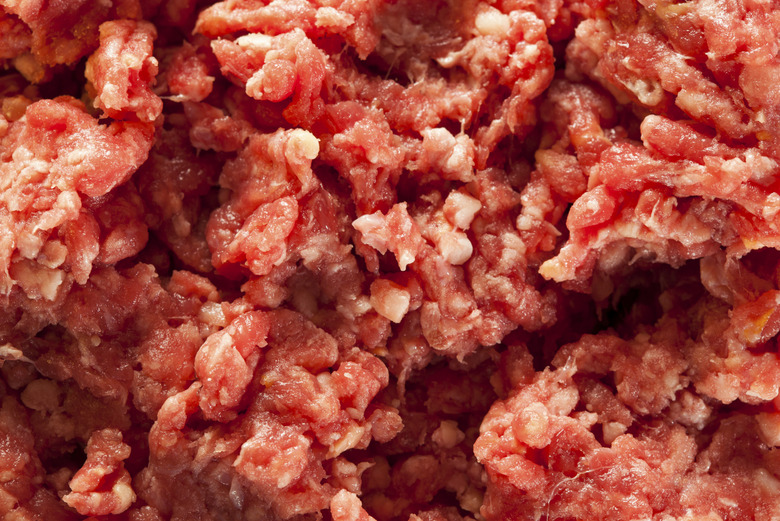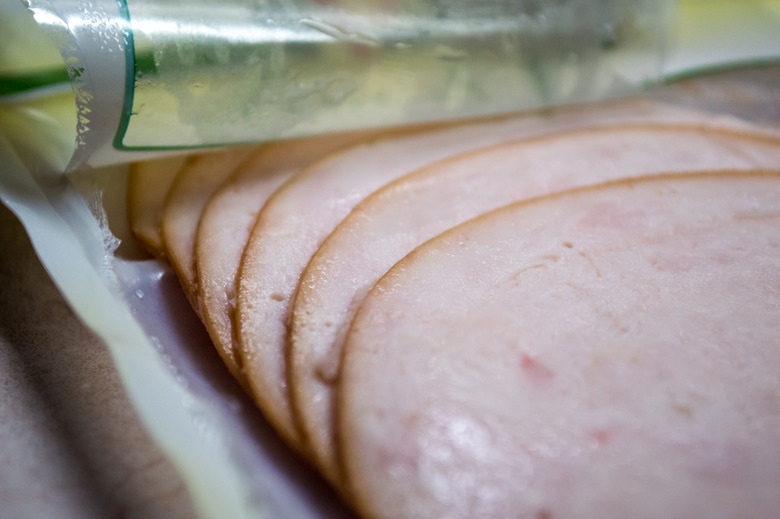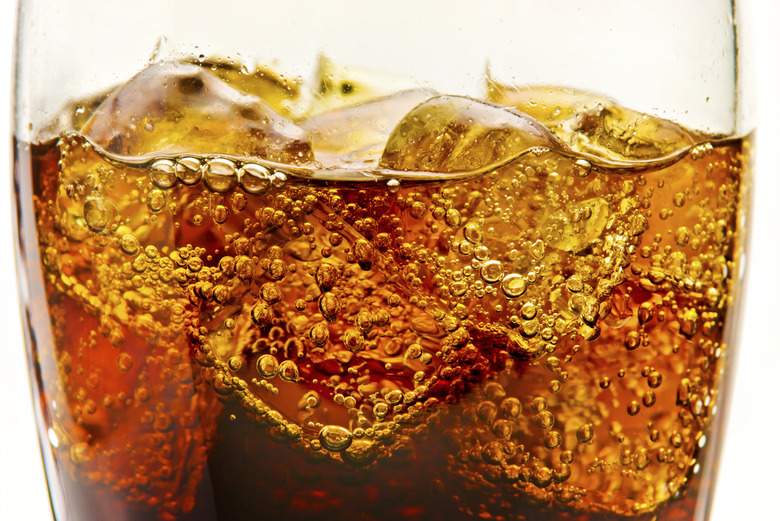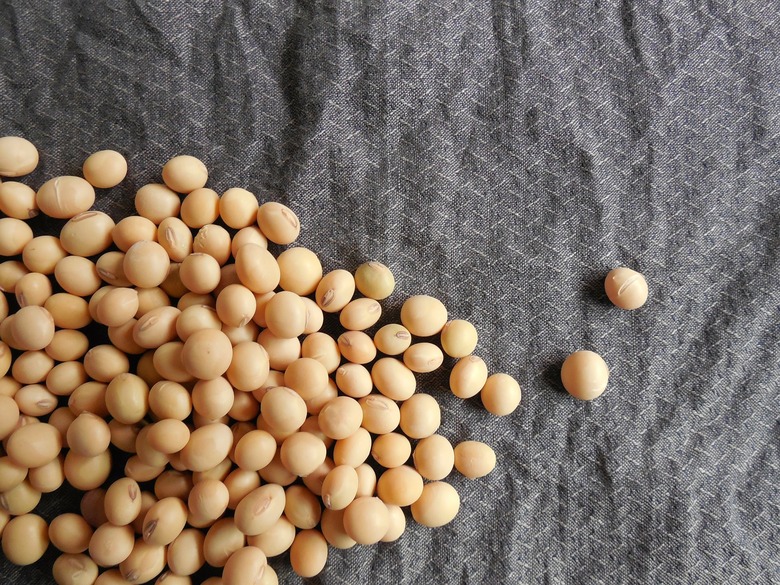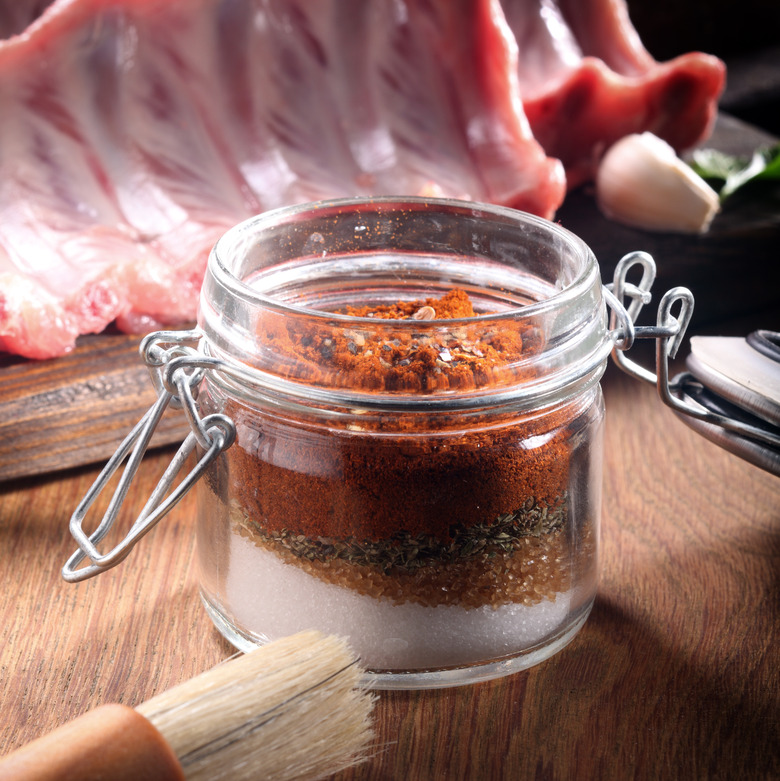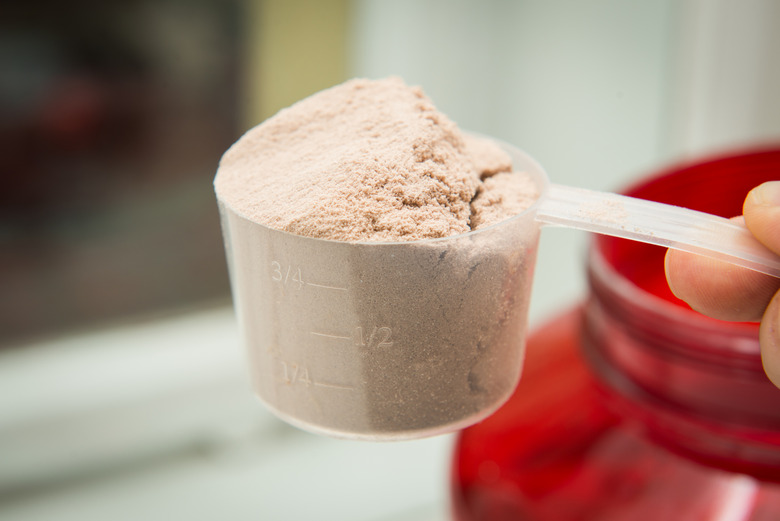27 Foods Doctors Won't Eat And Why Slideshow
From celebrity doctors like Dr. Oz to our personal physicians, a wide range of experts have shared the foods that they don't eat and why they won't eat them. After seeing the results, you can get a better view on the current state of American food trends as well as healthy and unhealthy dining options. Click ahead to see the 27 foods they said no to this time.
Alcohol
A dermatologist and the founder of Dermio Dermatology, Dr. A. David Soleymani, MD, says to avoid alcohol in cases of "psoriasis or eczema as it tends to be pro-inflammatory as well as dehydrating."
Dr. Joy Dubost, RD, CSSD, is selective in which alcohol she chooses to enjoy. She suggests avoiding wine and cocktails, saying, "When choosing alcoholic beverages I always go for the beer. I prefer to drink beer from draft or bottle since I can easily monitor the alcohol amount consumed as well as get a sense of the calories consumed. Plus, a light beer provides less calories and less than one drink equivalent. Honestly I just enjoy the flavor profile of beer too!"
Bacon
It is probably no surprise to you that this practically universally loved food is on this list, but are you entirely sure why? "I would not eat bacon, because it is full of fat and cholesterol, and the nutritional value is very minimal," says Dr. Omid Javadi, cardiovascular and thoracic surgeon at Good Samaritan Hospital in San Jose, California. "I think bacon is probably one of the worst foods on the planet. People love the taste and it is very palatable because of that fact, but when you look at its content, it is pure fat and cholesterol — and fat is just hanging from it."
Boxed Cereals
"They are full of sugar and often unhealthy grains," says Dr. Lipman, Integrative & Functional Medicine Physician, founder of Eleven Eleven Wellness Center, and author of The New Health Rules. "Rather than having cereal for breakfast, a dose of healthy fats and protein will start your day off right. Have boiled or poached eggs with greens, sardines on gluten-free crispbreads, or half an avocado sprinkled with salt or spritzed with lemon."
Breads or Pasta
"I won't eat bread or pasta," says Dr. Patrick Roth, author of The End of Back Pain, chairman of neurosurgery at Hackensack University Medical Center, and founding member of the North Jersey Brain & Spine Center. "This choice is based on the belief that each of us has a distinct susceptibility to foods with a high glycemic index. I subscribe to focusing on keeping my insulin level low with low glycemic index foods rather than on counting calories. Bread and pasta present three problems: They are high glycemic index, they are not whole foods (manmade), and they are tremendously delicious and addictive."
Cheetos
Dr. Nicole Farmer, Integrative Physician at the Casey Health Institute, won't eat these "because of the blend of artificial colors used and the MSG, both of which can serve as excitatory neurotoxins. Also, any type of puffed corn product that goes through [the] extruder process decreases most nutrients from the corn product and promotes inflammation."
Chicken Nuggets
"After decades of studying and working intimately with anatomy, studying comparative physiology, and breaking down whole animals and primals for service, I've yet to have any real clear understanding of exactly from what part of the chicken the nugget is derived," says Dr. Fenster. "Until Mulder and Scully can prove otherwise, this is clearly the brainchild of The Smoking Man."
Cotton Candy
This section also includes any foods you could find at a carnival, especially those served on a stick.
Carnival foods are "almost all fried, covered with sugar, or made with chemical dyes," warns Dr. Alton. "Cotton candy is an example; it's pretty much all specially-treated dyed sugar, called 'floss' sugar. Food dyes have shown some issues in animal studies. My main concern, of course, is that you're essentially just eating pure sugar."
Dr. Dubost agrees. She avoids all food served on sticks. "Most of the time you find these at carnivals or fairs," she says, "but for the most part these items are fried in unhealthy oils... [D]o you even really taste anything but fried oil?"
Diet Soda
"It is no better than regular soda, but with all the chemicals in it to lead to the metabolic syndrome," says Dr. Suzanne Steinbaum, attending cardiologist and the Director of Women's Heart Health of Lenox Hill Hospital in New York City. "No reason to add this one to your diet. A truly unhealthy choice."
"Poison in my opinion," agrees Dr. Michael Fiorillo, a plastic surgeon in Pearl River, New York.
The artificial sugars in diet soda really turn doctors off. "Anything with aspartame — it's true that you are not getting any calories in your diet beverage but the dangers associated with aspartame may not be worth it," says Santa Monica OB/GYN Dr. Sheryl Ross. "This zero-calorie sugar substitute may be linked to headaches, dizziness, digestive problems, mood changes, Alzheimer's disease, multiple sclerosis, and some cancers."
Drive-Thru Breakfast Sandwiches
"Fresh, wholesome red meat is not the problem. Tasteless, gray tubes and patties of a manufactured meat-like goo are," says Dr. Michael Fenster, MD, FACC, FSCA&I, PEMBA, a faculty member at The University of Montana College of Health Professions and Biomedical Sciences, about fast food breakfast sandwiches. "While they should've been put away long ago for assault and battery on our tasteful sensibilities, there is a reason that the World Health Organization classifies these as human carcinogens. Placing them between slabs of white, refined carbohydrates that are denser than the pages of War and Peace (and about both as tasty and nutritious), topping it with an electro-neon orange, processed cheese-like, food-ish substance may actually accelerate the process from carcinogenic to directly genotoxic."
"Breakfast provides a great opportunity to incorporate specific food groups that we may fall short on the rest of the day, such as whole grains, low-fat dairy, and fruit," says Dr. Dubost, RD, CSSD. "I would rather have a well-balanced breakfast like oatmeal topped with fresh fruit and a glass of skim milk."
Egg White Omelets
"As I've been writing, lecturing, and teaching about for years, dietary cholesterol and egg yolks have never been the real issue," says Dr. Fenster. "The new 2015 dietary guidelines finally acknowledged this by eliminating any limits on dietary cholesterol consumption. Yet we are still continually surrounded by the 'healthy option' egg white omelette. Not only is it completely unnecessary, it is calumny and slander to the wonderful flavor, texture, and sublime satisfaction that a perfectly executed omelette can deliver. You might as well just put whatever would load up your egg white omelette with inside [of a] Styrofoam container and eat that."
Energy Drinks
Dr. Fenster considers energy drinks a veritable death sentence. "High fructose corn syrup and enough caffeine to induce ventricular fibrillation. Add in a sprinkling of artificial flavors, artificial preservatives, and a hue of color not found in the natural world and you have the perfect addictive death tonic."
Fast Food Salad
"This 'healthy option' is an evil dietary doppelgänger. The vegetables are often so limp as to require a supplement of veggie Viagra to regain their crunch. Not that that would necessarily do any good in awakening them from their preservative-induced catatonic state," says Dr. Fenster. "The only thing lacking more than their nutritional value is their flavor. To assist us in this process of produce necromancy we are invariably given a tube of artificially flavored and artificially preserved, emulsified (often GMO) vegetable oil. It's a meal fit for a king... a zombie king."
Fatty Meats
Fatty meat such as ground beef may taste great, but many view it as detrimental to one's health. "If I can see the fat on it I will either trim it off or pass altogether, such as steak, ham, or other meats," says Dr. Dubost. "Lean meats can be very flavorful without all the extra calories and saturated fat."
Fish
"Unless you watched it come in off the boat with your very own peepers," says Dr. Fenster, "there is no such thing as fresh fish on Sunday. Any fish... including shellfish. I was on vacation one time many years ago and having such a good time on a Sunday afternoon [that] I forgot this universal restaurant truism. I can personally vouch that with enough butter, garlic, spice, and white wine you cannot taste a bad mussel. The result was the worst case of food poisoning I've ever suffered to this day."
Fried Foods
"They are some of the most fattening foods in America and the joy of their taste is not worth the weight gain," says Dr. Mehmet Oz, talk show host, best-selling author, and Vice-Chair and Professor of Surgery at Columbia University. "They sometimes also have hydrogenated fats from being basted in boiling oils containing damaged fats. These trans-fats increase cholesterol and the risk of coronary heart disease. They do increase shelf life, but at the cost of human life."
High Fructose Corn Syrup
"In medicine, there is a well-known saying that the poison is in the dose. When it comes to high fructose corn syrup, that dose is any amount you ingest," says Dr. Fenster.
McRib
"Quite simply, WTF?" says Dr. Fenster on McDonald's almost-mythically appreciated rib sandwich. "It's supposed to be a slow-simmered pork sandwich on a bun with barbecue sauce, pickle slices, and slivered onions... the belle of Southern cuisine. Instead, it is bellicose on the palate... some weird, psychedelic pink, pressed mystery meat construction that is [reportedly] comprised of over 70 different ingredients. You don't have to be Mr. Green Jeans to figure out that, not only did this not come farm-to-table fresh, but after one bite you will probably buy the farm."
Microwave Popcorn
This beloved movie-night snack could cost you your health. Some packaged popcorn "contains chemicals that can cause cancer," says Dr. Fiorillo.
Milk
While unpasteurized milk can be harmful because of the bacterial content it may contain, skim milk has its dangers too. "The process of removing some of the fat particles creates oxidized cholesterol in the remaining fat," explains Dr. Farmer. "Better to use whole fat dairy in moderation."
Dr. Joy Dubost disagrees. From her standpoint as a registered dietitian, she feels that full fat dairy isn't necessary in one's diet. "I enjoy low-fat or fat-free dairy. Why increase the calories and saturated fat when I can easily enjoy low-fat products like one percent or skim milk, low-fat yogurt (regular or frozen), and reduced-fat cheese?"
Miracle Foods
"As the noted biochemist and scholar Harold Draper once observed, 'There are no essential foods — only essential nutrients.' The hawking of superfoods, miracle diets, and other instant and painless cures for the Pandora's box of health problems that confront the average American after decades of consuming the modern Western diet is really naught, but the quest for a modern-day philosopher's stone," says Dr. Mike Fenster about the last item on his list of "Nine Things Even Culinary CPR Could Not Revive" (think of foods like goji berries here).
"You will be much more satisfied and ever so much savvier if you simply select a fresh, natural, and wholesome alternative in the next bin. You will also find your mood much more sufficiently enhanced at the checkout line. It's like the moment you realize that Clark Kent is Superman."
Non-USDA Organic Beef
"A non-USDA organic beef product can contain a 'pink slime' filler that comprises up to 25 percent of the product," says dermatologist Dr. Janet H. Prystowsky, MD, PC. "Beef products that contain 15 percent 'pink slime' or less can still be labeled '100 percent ground beef.' Pink slime is a combination of meat trimmings and connective tissues that have been treated with gaseous ammonia and other food processing treatments. While safe for human consumption, there is an ongoing debate regarding the nutritional value of this meat filler. ABC reported in 2012 that 70 percent of ground beef sold in the United States contained pink slime."
Pastries
"Ninety-nine percent of pastries, like doughnuts, are made from genetically modified wheat," claims internist and nutritionist Dr. Michael Hirt, founder of the Center for Integrative Medicine in California's San Fernando Valley. "This mutant grain contains 200-plus proteins that have never been safety studied in humans and have been linked to many diseases, including diabetes, heart disease, obesity, cancer, arthritis, and autoimmune conditions. Pastries are also loaded with sugar. Recent studies from Australian researchers demonstrate that sugar consumption can negatively impact your DNA and trigger genetic changes that make you more susceptible to certain diseases like diabetes and heart disease. This effect lasts for two weeks after just one serving sugar. Sugar also weakens the immune system, and can make you more vulnerable to infections for as long as five hours after just one dose of this sweet poison. Not a great idea during cold and flu season, or any time you are traveling or exposed to crowds."
Processed Meats
When it comes to lunch meat, including chicken and turkey, most people think they are safe choosing to eat such a lean protein. But not reading labels can cost you down the line.
"In general, processed meats include a collection of meat that would otherwise be thrown away," says Dr. David A. Greuner, MD, FACS, FICS, surgical director at NYC Surgical, "but is combined with other typically non-edible products and chemicals to artificially create a palatable mixture. This means that not only are the least nutritious byproducts of animals used, but artificial fillers, flavors, and preservatives are added, at times, in large quantities to ensure that the new concoction is both flavorful and visually appealing, despite the dismal nutritional profile."
Soft Drinks
"I stay away from all sodas, with sugar and especially with sugar substitutes," states Dr. David Agus, a professor of medicine and engineering at the University of Southern California Keck School of Medicine and Viterbi School of Engineering and CBS News contributor.
"For me, it is soft drinks," says cardiologist Dr. Kevin Campbell in Raleigh, North Carolina. "Soft drinks are loaded with sugars [and] high fructose corn syrup, and have absolutely no nutritional value. They contribute to obesity and their consumption can lead to high blood pressure and other risks for heart disease. Moreover, they contain large doses of caffeine, which can impair concentration and further elevate blood pressure and heart rate. For those with underlying heart disease, this can be the thing that sets off a series of events leading to heart attack or stroke."
Soy
Dr. Michael Hall, MD, MSc, PA, DABFM, head of Hall Longevity Clinic in Miami Beach, warns against the presence of GMOs in the production of soy, stating that "almost 90 percent of all soy is GMO and has been genetically altered to the point that eating [it] may actually cause the good gut bacteria to die and cause a very rare form of malnutrition. It is very important for overall health that normal gut flora is processed and assists the body [in] absorb[ing] micronutrients like trace elements and minerals properly."
Spices with Added Salt
"I always check the label to ensure that salt is not an ingredient," says Dr. Dubost. "There are plenty of herbs and spices available that no longer have salt as an ingredient. I do not need all the salt in my diet. Plus, I don't want to have to drink a gallon of water to quench my thirst after the meal."
Whey Protein
Whey protein is widely used by athletes and smoothie-enthusiasts, but it may not be as healthy as we all assume. "Whey protein is a popular sport supplement for building muscle. The problem with whey is that it contains an insulin-like growth factor that stimulates the body's production of insulin and androgens," says Dr. Prystowsky, MD, PC. "The increased insulin and androgen production increases sebum production in the skin, resulting in acne. If you use whey protein and have acne, switching to a non-milk protein source could alleviate your acne. There is no evidence that concentrated protein supplements help a healthy athlete anyway."

